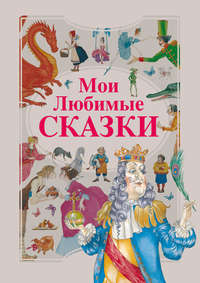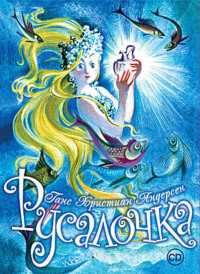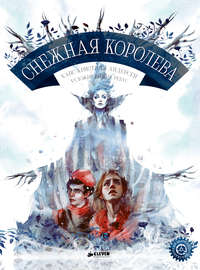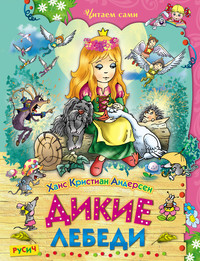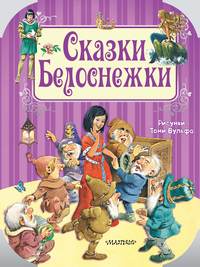 полная версия
полная версияWhat the Moon Saw: and Other Tales
"He is only a young fellow," he said.
But Knud thought to himself: "On Sunday I shall see her, and I shall tell her how completely she reigns in my heart and soul, and that she must be my little wife. I know I am only a poor journeyman shoemaker, but I shall work and strive – yes, I shall tell her so. Nothing comes of silent love: I have learned that from the cakes."
And Sunday came round, and Knud sallied forth; but, unluckily, they were all invited out for that evening, and were obliged to tell him so. Joanna pressed his hand and said,
"Have you ever been to the theatre? You must go once. I shall sing on Wednesday, and if you have time on that evening, I will send you a ticket; my father knows where your master lives."
How kind that was of her! And on Wednesday at noon he received a sealed paper, with no words written in it; but the ticket was there, and in the evening Knud went to the theatre for the first time in his life. And what did he see? He saw Joanna, and how charming and how beautiful she looked! She was certainly married to a stranger, but that was all in the play – something that was only make-believe, as Knud knew very well. If it had been real, he thought, she would never have had the heart to send him a ticket that he might go and see it. And all the people shouted and applauded, and Knud cried out "hurrah!"
Even the king smiled at Joanna, and seemed to delight in her. Ah, how small Knud felt! but then he loved her so dearly, and thought that she loved him too; but it was for the man to speak the first word, as the gingerbread maiden in the child's story had taught him: and there was a great deal for him in that story.
So soon as Sunday came, he went again. He felt as if he were going into a church. Joanna was alone, and received him – it could not have happened more fortunately. "It is well that you are come," she said.
"I had an idea of sending my father to you, only I felt a presentiment that you would be here this evening; for I must tell you that I start for France on Friday: I must go there, if I am to become efficient."
It seemed to Knud as if the whole room were whirling round and round with him. He felt as if his heart would presently burst: no tear rose to his eyes, but still it was easy to see how sorrowful he was.
"You honest, faithful soul!" she exclaimed; and these words of hers loosened Knud's tongue. He told her how constantly he loved her, and that she must become his wife; and as he said this, he saw Joanna change colour and turn pale. She let his hand fall, and answered, seriously and mournfully,
"Knud, do not make yourself and me unhappy. I shall always be a good sister to you, one in whom you may trust, but I shall never be anything more." And she drew her white hand over his hot forehead. "Heaven gives us strength for much," she said, "if we only endeavour to do our best."
At that moment the stepmother came into the room; and Joanna said quickly,
"Knud is quite inconsolable because I am going away. Come, be a man," she continued, and laid her hand upon his shoulder; and it seemed as if they had been talking of the journey, and nothing else. "You are a child," she added; "but now you must be good and reasonable, as you used to be under the willow tree, when we were both children."
But Knud felt as if the whole world had slid out of its course, and his thoughts were like a loose thread fluttering to and fro in the wind. He stayed, though he could not remember if she had asked him to stay; and she was kind and good, and poured out his tea for him, and sang to him. It had not the old tone, and yet it was wonderfully beautiful, and made his heart feel ready to burst. And then they parted. Knud did not offer her his hand, but she seized it, and said,
"Surely you will shake hands with your sister at parting, old playfellow!"
And she smiled through the tears that were rolling over her cheeks, and she repeated the word "brother" – and certainly there was good consolation in that – and thus they parted.
She sailed to France, and Knud wandered about the muddy streets of Copenhagen. The other journeymen in the workshop asked him why he went about so gloomily, and told him he should go and amuse himself with them, for he was a young fellow.
And they went with him to the dancing-rooms. He saw many handsome girls there, but certainly not one like Joanna; and here, where he thought to forget her, she stood more vividly than ever before the eyes of his soul. "Heaven gives us strength for a great deal, if we only try to do our best," she had said; and holy thoughts came into his mind, and he folded his hands. The violins played, and the girls danced round in a circle; and he was quite startled, for it seemed to him as if he were in a place to which he ought not to have brought Joanna – for she was there with him, in his heart; and accordingly he went out. He ran through the streets, and passed by the house where she had dwelt: it was dark there, dark everywhere, and empty, and lonely. The world went on its course, but Knud pursued his lonely way, unheedingly.
The winter came, and the streams were frozen. Everything seemed to be preparing for a burial. But when spring returned, and the first steamer was to start, a longing seized him to go away, far, far into the world, but not to France. So he packed his knapsack, and wandered far into the German land, from city to city, without rest or peace; and it was not till he came to the glorious old city of Nuremberg that he could master his restless spirit; and in Nuremberg, therefore, he decided to remain.
Nuremberg is a wonderful old city, and looks as if it were cut out of an old picture-book. The streets seem to stretch themselves along just as they please. The houses do not like standing in regular ranks. Gables with little towers, arabesques, and pillars, start out over the pathway, and from the strange peaked roofs water-spouts, formed like dragons or great slim dogs, extend far over the street.
Here in the market-place stood Knud, with his knapsack on his back. He stood by one of the old fountains that are adorned with splendid bronze figures, scriptural and historical, rising up between the gushing jets of water. A pretty servant-maid was just filling her pails, and she gave Knud a refreshing draught; and as her hand was full of roses, she gave him one of the flowers, and he accepted it as a good omen.
From the neighbouring church the strains of the organ were sounding: they seemed to him as familiar as the tones of the organ at home at Kjöge; and he went into the great cathedral. The sunlight streamed in through the stained glass windows, between the two lofty slender pillars. His spirit became prayerful, and peace returned to his soul.
And he sought and found a good master in Nuremberg, with whom he stayed, and in whose house he learned the German language.
The old moat round the town has been converted into a number of little kitchen gardens; but the high walls are standing yet, with their heavy towers. The ropemaker twists his ropes on a gallery or walk built of wood, inside the town wall, where elder bushes grow out of the clefts and cracks, spreading their green twigs over the little low houses that stand below; and in one of these dwelt the master with whom Knud worked; and over the little garret window at which Knud sat the elder waved its branches.
Here he lived through a summer and a winter; but when the spring came again he could bear it no longer. The elder was in blossom, and its fragrance reminded him so of home, that he fancied himself back in the garden at Kjöge; and therefore Knud went away from his master, and dwelt with another, farther in the town, over whose house no elder bush grew.
His workshop was quite close to one of the old stone bridges, by a low water-mill, that rushed and foamed always. Without, rolled the roaring stream, hemmed in by houses, whose old decayed gables looked ready to topple down into the water. No elder grew here – there was not even a flower-pot with its little green plant; but just opposite the workshop stood a great old willow tree, that seemed to cling fast to the house, for fear of being carried away by the water, and which stretched forth its branches over the river, just as the willow at Kjöge spread its arms across the streamlet by the gardens there.
Yes, he had certainly gone from the "Elder-mother" to the "Willow-father." The tree here had something, especially on moonlight evenings, that went straight to his heart – and that something was not in the moonlight, but in the old tree itself.
Nevertheless, he could not remain. Why not? Ask the willow tree, ask the blooming elder! And therefore he bade farewell to his master in Nuremberg, and journeyed onward.
To no one did he speak of Joanna – in his secret heart he hid his sorrow; and he thought of the deep meaning in the old childish story of the two cakes. Now he understood why the man had a bitter almond in his breast – he himself felt the bitterness of it; and Joanna, who was always so gentle and kind, was typified by the honey-cake. The strap of his knapsack seemed so tight across his chest that he could scarcely breathe; he loosened it, but was not relieved. He saw but half the world around him; the other half he carried about him, and within himself. And thus it stood with him.
Not till he came in sight of the high mountains did the world appear freer to him; and now his thoughts were turned without, and tears came into his eyes.
The Alps appeared to him as the folded wings of the earth; how if they were to unfold themselves, and display their variegated pictures of black woods, foaming waters, clouds, and masses of snow? At the last day, he thought, the world will lift up its great wings, and mount upwards towards the sky, and burst like a soap-bubble in the glance of the Highest!
"Ah," sighed he, "that the Last Day were come!"
Silently he wandered through the land, that seemed to him as an orchard covered with soft turf. From the wooden balconies of the houses the girls who sat busy with their lace-making nodded at him; the summits of the mountains glowed in the red sun of the evening; and when he saw the green lakes gleaming among the dark trees, he thought of the coast by the Bay of Kjöge, and there was a longing in his bosom, but it was pain no more.
There where the Rhine rolls onward like a great billow, and bursts, and is changed into snow-white, gleaming, cloud-like masses, as if clouds were being created there, with the rainbow fluttering like a loose band above them; there he thought of the water-mill at Kjöge, with its rushing, foaming water.
Gladly would he have remained in the quiet Rhenish town, but here too were too many elder trees and willows, and therefore he journeyed on, over the high, mighty mountains, through shattered walls of rock, and on roads that clung like swallows' nests to the mountain-side. The waters foamed on in the depths, the clouds were below him, and he strode on over thistles, Alpine roses, and snow, in the warm summer sun; and saying farewell to the lands of the North, he passed on under the shade of blooming chestnut trees, and through vineyards and fields of maize. The mountains were a wall between him and all his recollections; and he wished it to be so.
Before him lay a great glorious city which they called Milano, and here he found a German master who gave him work. They were an old pious couple, in whose workshop he now laboured. And the two old people became quite fond of the quiet journeyman, who said little, but worked all the more, and led a pious Christian life. To himself also it seemed as if Heaven had lifted the heavy burden from his heart.
His favourite pastime was to mount now and then upon the mighty marble church, which seemed to him to have been formed of the snow of his native land, fashioned into roofs, and pinnacles, and decorated open halls: from every corner and every point the white statues smiled upon him. Above him was the blue sky, below him the city and the wide-spreading Lombard plains, and towards the north the high mountains clad with perpetual snow; and he thought of the church at Kjöge, with its red, ivy-covered walls, but he did not long to go thither: here, beyond the mountains, he would be buried.
He had dwelt here a year, and three years had passed away since he left his home, when one day his master took him into the city, not to the circus where riders exhibited, but to the opera, where was a hall worth seeing. There were seven storeys, from each of which beautiful silken curtains hung down, and from the ground to the dizzy height of the roof sat elegant ladies, with bouquets of flowers in their hands, as if they were at a ball, and the gentlemen were in full dress, and many of them decorated with gold and silver. It was as bright there as in the brilliant sunshine, and the music rolled gloriously through the building. Everything was much more splendid than in the theatre at Copenhagen, but then Joanna had been there, and – could it be? Yes, it was like magic – she was here also! for the curtain rose, and Joanna appeared, dressed in silk and gold, with a crown upon her head: she sang as he thought none but angels could sing, and came far forward, quite to the front of the stage, and smiled as only Joanna could smile, and looked straight down at Knud. Poor Knud seized his master's hand, and called out aloud, "Joanna!" but no one heard but the master, who nodded his head, for the loud music sounded above everything. "Yes, yes, her name is Joanna," said the master; and he drew forth a printed playbill, and showed Knud her name – for the full name was printed there.
No, it was not a dream! All the people applauded, and threw wreaths and flowers to her, and every time she went away they called her back, so that she was always going and coming.
In the street the people crowded round her carriage, and drew it away in triumph. Knud was in the foremost row, and shouted as joyously as any; and when the carriage stopped before her brilliantly lighted house, Knud stood close beside the door of the carriage. It flew open, and she stepped out: the light fell upon her dear face, as she smiled, and made a kindly gesture of thanks, and appeared deeply moved. Knud looked straight into her face, and she looked into his, but she did not know him. A man, with a star glittering on his breast, gave her his arm – and it was whispered about that the two were engaged.
Then Knud went home and packed his knapsack. He was determined to go back to his own home, to the elder and the willow tree – ah, under the willow tree! A whole life is sometimes lived through in a single hour.
The old couple begged him to remain, but no words could induce him to stay. It was in vain they told him that winter was coming, and pointed out that snow had already fallen in the mountains; he said he could march on, with his knapsack on his back, in the wake of the slow-moving carriage, for which they would have to clear a path.
So he went away towards the mountains, and marched up them and down them. His strength was giving way, but still he saw no village, no house; he marched on towards the north. The stars gleamed above him, his feet stumbled, and his head grew dizzy. Deep in the valley stars were shining too, and it seemed as if there were another sky below him. He felt he was ill. The stars below him became more and more numerous, and glowed brighter and brighter, and moved to and fro. It was a little town whose lights beamed there; and when he understood that, he exerted the remains of his strength, and at last reached the shelter of a humble inn.
That night and the whole of the following day he remained there, for his body required rest and refreshment. It was thawing; there was rain in the valley. But early on the second morning came a man with an organ, who played a tune of home; and now Knud could stay no longer. He continued his journey towards the north, marching onward for many days with haste and hurry, as if he were trying to get home before all were dead there; but to no one did he speak of his longing, for no one would have believed in the sorrow of his heart, the deepest a human heart can feel. Such a grief is not for the world, for it is not amusing; nor is it even for friends; and moreover he had no friends – a stranger, he wandered through strange lands towards his home in the north.
It was evening. He was walking on the public high-road. The frost began to make itself felt, and the country soon became flatter, containing mere field and meadow. By the road-side grew a great willow tree. Everything reminded him of home, and he sat down under the tree: he felt very tired, his head began to nod, and his eyes closed in slumber, but still he was conscious that the tree stretched its arms above him; and in his wandering fancy the tree itself appeared to be an old, mighty man – it seemed as if the "Willow-father" himself had taken up his tired son in his arms, and were carrying him back into the land of home, to the bare bleak shore of Kjöge, to the garden of his childhood. Yes, he dreamed it was the willow tree of Kjöge that had travelled out into the world to seek him, and that now had found him, and had led him back into the little garden by the streamlet, and there stood Joanna, in all her splendour, with the golden crown on her head, as he had seen her last, and she called out "welcome" to him.
And before him stood two remarkable shapes, which looked much more human than he remembered them to have been in his childhood: they had changed also, but they were still the two cakes that turned the right side towards him, and looked very well.
"We thank you," they said to Knud. "You have loosened our tongues, and have taught us that thoughts should be spoken out freely, or nothing will come of them; and now something has indeed come of it – we are betrothed."
Then they went hand in hand through the streets of Kjöge, and they looked very respectable in every way: there was no fault to find with them. And they went on, straight towards the church, and Knud and Joanna followed them; they also were walking hand in hand; and the church stood there as it had always stood, with its red walls, on which the green ivy grew; and the great door of the church flew open, and the organ sounded, and they walked up the long aisle of the church. "Our master first," said the cake-couple, and made room for Joanna and Knud, who knelt by the altar, and she bent her head over him, and tears fell from her eyes, but they were icy cold, for it was the ice around her heart that was melting – melting by his strong love; and the tears fell upon his burning cheeks, and he awoke, and was sitting under the old willow tree in the strange land, in the cold wintry evening: an icy hail was falling from the clouds and beating on his face.
"That was the most delicious hour of my life!" he said, "and it was but a dream. Oh, let me dream again!" And he closed his eyes once more, and slept and dreamed.
Towards morning there was a great fall of snow. The wind drifted the snow over him, but he slept on. The villagers came forth to go to church, and by the road-side sat a journeyman. He was dead – frozen to death under the willow tree!
THE BEETLE
The emperor's favourite horse was shod with gold. It had a golden shoe on each of its feet.
And why was this?
He was a beautiful creature, with delicate legs, bright intelligent eyes, and a mane that hung down over his neck like a veil. He had carried his master through the fire and smoke of battle, and heard the bullets whistling around him, had kicked, bitten, and taken part in the fight when the enemy advanced, and had sprung with his master on his back over the fallen foe, and had saved the crown of red gold, and the life of the emperor, which was more valuable than the red gold; and that is why the emperor's horse had golden shoes.
And a beetle came creeping forth.
"First the great ones," said he, "and then the little ones; but greatness is not the only thing that does it." And so saying, he stretched out his thin legs.
"And pray what do you want?" asked the smith.
"Golden shoes, to be sure," replied the beetle.
"Why, you must be out of your senses," cried the smith. "Do you want to have golden shoes too?"
"Golden shoes? certainly," replied the beetle. "Am I not just as good as that big creature yonder, that is waited on, and brushed, and has meat and drink put before him? Don't I belong to the imperial stable?"
"But why is the horse to have golden shoes? Don't you understand that?" asked the smith.
"Understand? I understand that it is a personal slight offered to myself," cried the beetle. "It is done to annoy me, and therefore I am going into the world to seek my fortune."
"Go along!" said the smith.
"You're a rude fellow!" cried the beetle; and then he went out of the stable, flew a little way, and soon afterwards found himself in a beautiful flower garden, all fragrant with roses and lavender.
"Is it not beautiful here?" asked one of the little lady-birds that flew about, with their delicate wings and their red-and-black shields on their backs. "How sweet it is here – how beautiful it is!"
"I'm accustomed to better things," said the beetle. "Do you call this beautiful? Why, there is not so much as a dung-heap."
Then he went on, under the shadow of a great stack, and found a caterpillar crawling along.
"How beautiful the world is!" said the caterpillar: "the sun is so warm, and everything so enjoyable! And when I go to sleep, and die, as they call it, I shall wake up as a butterfly, with beautiful wings to fly with."
"How conceited you are!" exclaimed the stag-beetle. "Fly about as a butterfly, indeed! I've come out of the stable of the emperor, and no one there, not even the emperor's favourite horse – that by the way wears my cast-off golden shoes – has any such idea. To have wings to fly! why, we can fly now;" and he spread his wings and flew away. "I don't want to be annoyed, and yet I am annoyed," he said, as he flew off.
Soon afterwards he fell down upon a great lawn. For awhile he lay there and feigned slumber; at last he fell asleep in earnest.
Suddenly a heavy shower of rain came falling from the clouds. The beetle woke up at the noise, and wanted to escape into the earth, but could not. He was tumbled over and over; sometimes he was swimming on his stomach, sometimes on his back, and as for flying, that was out of the question; he doubted whether he should escape from the place with his life. He therefore remained lying where he was.
When the weather had moderated a little, and the beetle had rubbed the water out of his eyes, he saw something gleaming. It was linen that had been placed there to bleach. He managed to make his way up to it, and crept into a fold of the damp linen. Certainly the place was not so comfortable to lie in as the warm stable; but there was no better to be had, and therefore he remained lying there for a whole day and a whole night, and the rain kept on during all the time. Towards morning he crept forth: he was very much out of temper about the climate.
On the linen two frogs were sitting. Their bright eyes absolutely gleamed with pleasure.
"Wonderful weather this!" one of them cried. "How refreshing! And the linen keeps the water together so beautifully. My hind legs seem to quiver as if I were going to swim."
"I should like to know," said the second, "if the swallow, who flies so far round, in her many journeys in foreign lands ever meets with a better climate than this. What delicious dampness! It is really as if one were lying in a wet ditch. Whoever does not rejoice in this, certainly does not love his fatherland."
"Have you been in the emperor's stable?" asked the beetle: "there the dampness is warm and refreshing. That's the climate for me; but I cannot take it with me on my journey. Is there never a muck-heap, here in the garden, where a person of rank, like myself, can feel himself at home, and take up his quarters?"
But the frogs either did not or would not understand him.
"I never ask a question twice!" said the beetle, after he had already asked this one three times without receiving any answer.
Then he went a little farther, and stumbled against a fragment of pottery, that certainly ought not to have been lying there; but as it was once there, it gave a good shelter against wind and weather. Here dwelt several families of earwigs; and these did not require much, only sociality. The female members of the community were full of the purest maternal affection, and accordingly each one considered her own child the most beautiful and cleverest of all.


